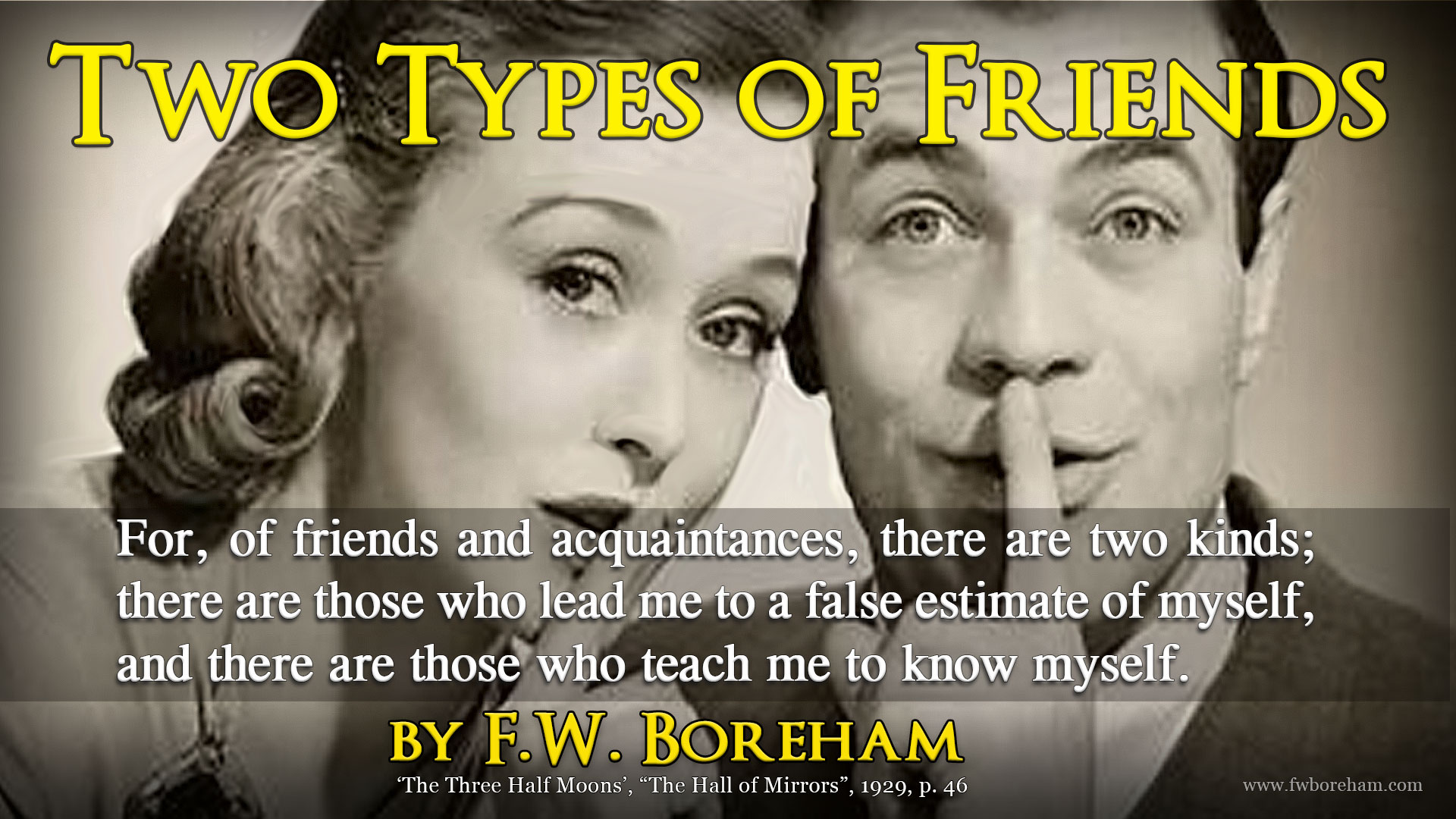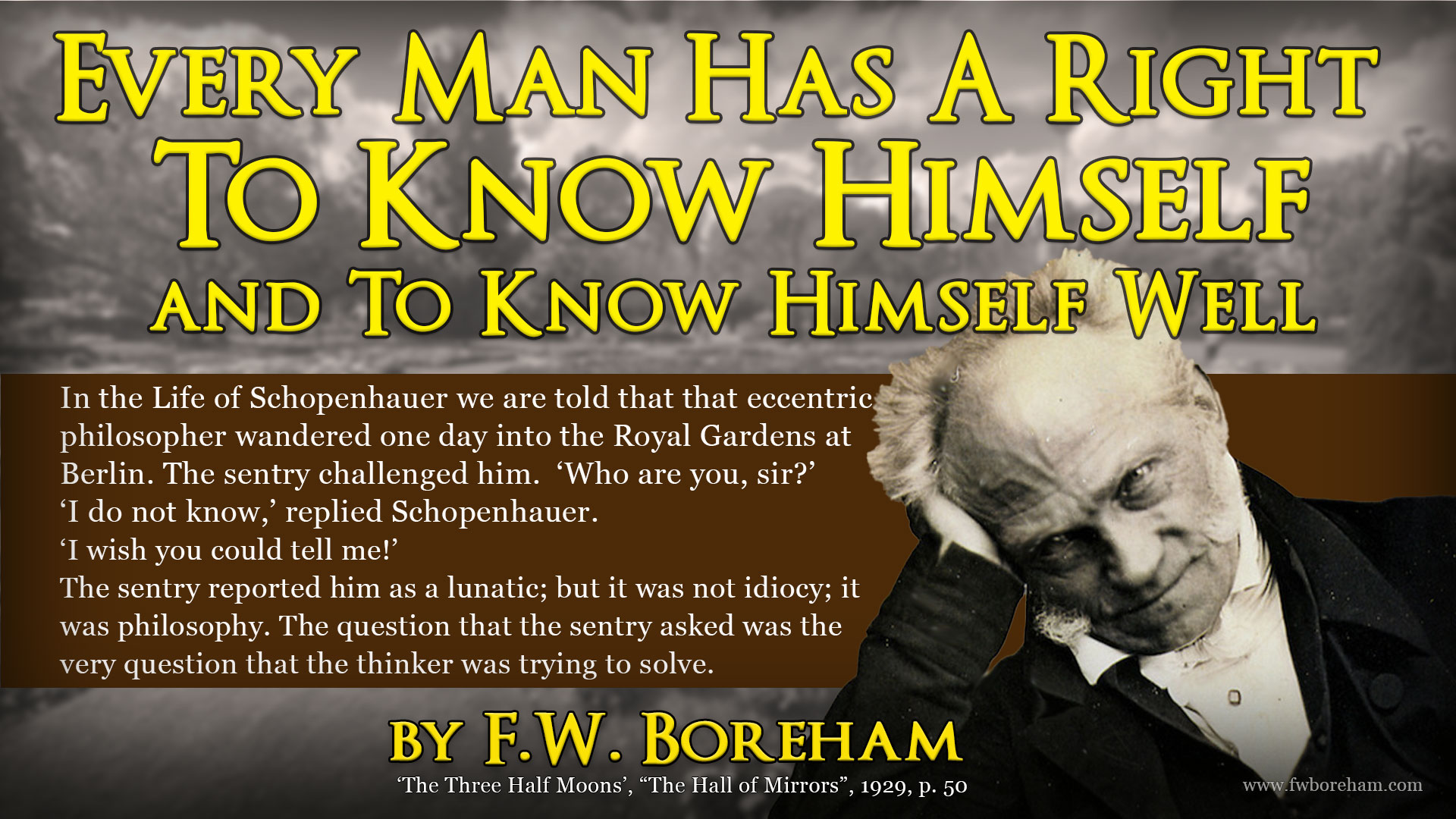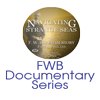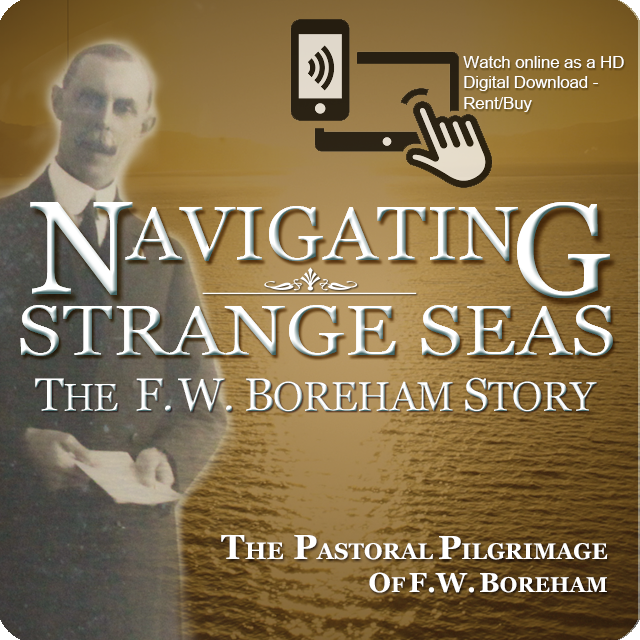home > books by FWB > 1929, The Three Half Moons > THE HALL OF MIRRORS
PART I
IV
THE HALL OF MIRRORS
There was quite a commotion among the water-fowl down on the lake; but I had no inclination to investigate the cause of the disturbance. I was resting under the shadow of a noble old cypress on a seat to which I make it a practice to repair once a week or so. The cypress stands high up on a grassy slope, overlooking not only the lake, with its water-lilies and its wild fowl, but a vast panorama of graceful lawns and glorious forestry. To this charming retreat I steal away from time to time to read, carefully and at leisure, the letters of a certain kind, which, in the course of the week, the postman brings me. As soon as I open my morning batch of correspondence, the missives divide themselves into two separate classes. There are letters of a business kind—letters affecting one’s ordinary duties and engagements, the letters that need immediate response or attention. And then there are long familiar letters—letters from the dear old home overseas, letters from Mosgiel or Hobart, letters from old comrades and from the friends of long ago. I feel, as I open these and hurriedly peruse them, that they deserve a more quiet and restful reading than it is possible to give them at the time. The imperative demands and urgent claims of those other letters create a rush and hurry in which I cannot enjoy these as I should. I look them through, therefore, and then lay them reverently aside. And, once a week, I say good-bye to the business letters and to all the matters with which they deal; and, with quiet mind and eager feet, I seek the friendly seclusion of the cypress on the hill. There, at leisure and at ease, I read the letters that form part of life’s loveliest luxury.
Yesterday afternoon, while the ducks and the moorhens were squabbling over some choice morsel at the waterside, I was lost to all the world in a couple of letters that, on my walk home, started a curious train of thought. They lie before me as I write. Both are from Mosgiel, or, at least, from those endeared to me by the associations and traditions of Mosgiel. The one is from Pearl Redman, the other is from Algie Laird. Pearl was born during my first years at Mosgiel; she was only nine when I left. Algie was already at school when I settled; he was a leader among the young men of the congregation when I left. Pearl writes from Auckland. She holds an important position in a large drapery emporium there. She tells me, in the course of her long letter, of her last day at Mosgiel, of her appointment to the establishment at Auckland, and of the years that she has spent in that city. The thing that amused and impressed me was Pearl’s description of her first experiences in her new situation. ‘I shall never forget,’ she says, ‘the day on which I took up my duties here. As I entered, the place gave me a feeling of indescribable spaciousness. The showrooms seemed to stretch away into infinity. I quickly discovered that this pleasing illusion was effected by a skilful use of mirrors. There were mirrors everywhere; and they were arranged at such an angle to the light that you did not realize that they were mirrors until you were right upon them. The consequence was that I spent my first day in running into myself at every turn. I ascended the stairs only to see myself ascending another flight of stairs immediately opposite. I emerged from the lift just in time to see myself issuing from another lift exactly like it. If I dared to look straight before me as I walked about the shop, I was sure to catch my own eye, or gaze full into my own face, as I approached from a diametrically opposite direction. I suppose I am as fond of a mirror as most girls of my age, but I never grew so thoroughly sick of the sight of myself as I did that day.’
So much for Pearl. I read her letter under the cypress tree and then turned to Algie’s.
Algie now owns a large foundry in Sydney, and the years have brought him great prosperity. He writes from London, whither he has gone on a business tour. ‘It is not all business,’ he says; ‘I am getting a good deal of fun out of it I spent a fortnight in Scotland, ten days in Ireland, and quite a long while in France. And, by the way, I was taken, at Versailles, to the Hall of Mirrors in which the Great Peace was signed in 1919. I was shown where the various statesmen sat, and I could almost, fancy that I saw them leaving their places one by one to sign the famous document.’

I walked home across the park thinking of the fast, fond friendships of earlier years and thinking also of the mirrors, And somehow the two subjects blended into one. As, in fancy, I reviewed the old familiar faces, I seemed to be strolling, like Pearl and Algie, among the mirrors. For, of friends and acquaintances, there are two kinds; there are those who lead me to a false estimate of myself, and there are those who teach me to know myself. There are those whose influence upon me makes for affectation and there are those whose influence upon me makes for revelation. There are those who make me turn my back upon myself, and there are those who compel me to look myself straight in the face and to know myself for what I am. When Smith introduces Jones to Robinson he performs one of the most sacred rites of friendship but when he introduces Jones to Jones he exercises the loftiest prerogative of all.
Not, by any means, that every man who, in honest Anglo-Saxon, tells me the plain unvarnished truth about myself is necessarily my best and dearest friend. No, no! My best and dearest friend exercises a sacred ministry of self-revelation, but he does it as the mirrors do. And the way of the mirrors is a quiet and kindly way.
Bret Harte has told us how the proprietor of Turtle’s store spruced up the rough miners of Roaring Camp. He said not a word; but he hung mirrors all round the store ! And when the men, lounging about the place, caught sight of the reflections in the glittering glasses, they silently resolved to pay some attention to their personal appearance! On the general subject of mirrors, a lady’s evidence is to be implicitly trusted, and Miss Mazie V. Carruthers has chanted their praise:
Always the mirrors on a wall
My curiosity enthrall.
They see so much, but never tell,
Keeping their crystal secrets well.
Within their depths, how many a face
Has peered, to leave therein no trace!
Haggard and old; or young and fair.
Have in their time been visioned there.
Reflecting everything, and still
Revealing neither good nor ill.
Oh, mirrors! confidants like you,
Who tell no tales, are passing few!
They are, indeed; and, for that reason, they form the select circle whose letters I take with me to the seat overlooking the swans.
All this reminds me of the story of Nathan, David in the presence of Nathan felt as Pearl Redman felt when she entered the Auckland showroom; he saw himself as he had never seen himself before. By means of his clever parable about the one little ewe lamb, and by means of the sudden personal thrust that immediately followed, Nathan introduced David to David; and David was, in consequence, a better man forever afterward.
Nathan is one of the pioneers of literature. Wherever statues are erected to the memory of our great novelists, a monument should be set up in a conspicuous place to his eternal honor. He was the first to realize the moral potentialities of fiction. He blazed the trail along which our most illustrious dramatists have followed. By means of his touching story of the rich man who stole and slew the pet lamb from the peasant’s cottage, Nathan held a mirror up to life and brought a monarch to his knees. Shakespeare, taking the hint, produced something very like it. He has told us how Hamlet trained the strolling players to reproduce the king’s crime before the royal but guilty party; and, when the monarch saw his own evil deeds enacted on the stage before him, the blood left his face, his heart stood still, the lights swam in blurred confusion before his failing sight, and, pleading sudden sickness, he staggered from the theatre. What Hamlet did for Claudius, and Nathan did for David, our best novelists and dramatists have been doing for us all ever since. It is good for a man, sitting with his novel beside a roaring fire on a winter’s night, to see his own little hypocrisies reflected in the hypocrisies of Uriah Heep, to see his own petty selfishness reflected in the selfishness of Mr. Dombey, to see his own vacillations and inconstancies exaggerated yet reflected in the oddities of Mr. Micawber, and to see the possibilities of his own redemption reflected in the noble self-sacrifice of Sydney Carton. I never expect to visit the Hall of Mirrors at Versailles; but whenever I dip into David Copperfield or Bleak House or Little Dorrit, I enjoy a very similar experience.
This quiet study of mine is itself a Hall of Mirrors. Charles Reade had the walls of his snuggery covered with mirrors so cunningly arranged that they constituted themselves a kind of camera obscura. Every movement outside his window was vividly reflected on the wall before him. The black-bird that flew from the plane tree to the elm, and the deer that went ambling across the park, were reproduced with cinematographic fidelity, and in Nature’s own colouring, on the novelist’s wall. I have no deer-park under my study window, and, even if I had, I have no wall to spare within this modest sanctum of mine; yet, as I glance upon the shelves around me, I seem to be gazing at reflections quite as vivid as those that adorned the home of Charles Reade. I catch sight of the works of Stanley and Livingstone, and at once all the pageant of Central Africa unrolls before me; my eye falls upon Wallace’s Travels, and I am instantly transported to the picturesque banks of the Amazon; the names of Scott and Shackleton summon to the fancy the virgin glaciers of the snowy South, And so on. I would rather have these mirrors than those that Charles Reade contrived. They brought a few acres of deer-park into his study, but these spread the veldts, the jungles, the deserts, the oceans, and the cities of the world before me.
All this, however, is indirect reflection. The mirror that reveals the blackbird in the plane tree, or the stag among the poplars, must be placed at an angle. The mirror that stands fairly and squarely before you reveals to you your own features. Like true friendship, it is self -revealing. Life’s most fond and intimate relationships do for us what, according to Milton, the glassy pool in the garden did for Eve. She herself tells us of her experience at that lovely spot:
As I bent down to look, first opposite
A shape within the watery gleam appeared,
Bending to look on me: I started back,
It started back; but, pleased, I soon returned.
Pleased it returned as soon with answering looks
Of sympathy and love. There I had fixed
My eyes till now, and pined with vain desire,
Had not a voice thus warned me : ‘What thou seest,
What there thou seest, fair creature, is thyself!’
No man has a right to become morbid; no man has a right to become conceited; but every man has a right to know himself and to know himself well. In the Life of Schopenhauer we are told that that eccentric philosopher wandered one day into the Royal Gardens at Berlin. The sentry challenged him.
‘Who are you, sir?’
‘I do not know,’ replied Schopenhauer. ‘I wish you could tell me!’
The sentry reported him as a lunatic; but it was not idiocy; it was philosophy. The question that the sentry asked was the very question that the thinker was trying to solve. But this sort of thing will not do. And, because it will not do, God has made his universe a Hall of Mirrors. There are looking-glasses everywhere! There were looking-glasses in the Tabernacle in the wilderness.
I have often been arrested by the striking record that Moses made the laver in the Tabernacle out of the looking-glasses of the women. I once tried hard to persuade John Broadbanks to preach to his people at Silverstream from that suggestive text. What a discourse my old friend would have delivered! I can almost hear him expatiating on the fact that the Jewesses had a part in the construction of the Tabernacle. And such a part! They brought their mirrors. As old John Trapp characteristically puts it, they freely gave the instruments whereby they beautified their bodies to make the instrument whereby they sanctified their souls. Nor is this all. Think of the way in which my Mosgiel neighbour could have enlarged on the use to which the mirrors were put! They were worked into the laver in order—to quote from Matthew Henry—in order that the priests, when they came to wash their faces, might see the spots and make them clean. ‘In the washing of repentance,’ adds the good old Puritan, ‘there is need of the looking-glass of self-examination.’ The mirrors revealed the defilement: the laver provided the means of cleansing. The passionate and persuasive appeal with which John Broadbanks would have brought that fine evangelistic sermon to a close would have stirred the conscience and touched the heart of every hearer.
Yes, there are mirrors everywhere. A thousand forces are waiting to do for us what Mr. De Morgan’s Alice-for-Short does for Mrs. Verrinder. For sixty years Mrs. Verrinder has been dead to all the world. It is a case of traumatic insanity. Her husband lived close to the asylum for thirty years in order that he might be available if a lucid interval occurred. But none came, and, growing tired of waiting, he dropped into his grave. At length, with the advance of science, it is suggested that an operation might meet the case ; and the work of skilful surgeons is crowned with complete success. Mrs. Verrinder recovers; but, in recovering, has lost all sense of the years that the long illness has stolen from her. She fancies that she is still girlish and pretty. Alice-for-Short undertakes the delicate task of introducing her to herself. She leads her gently toward a full-length mirror.
‘Who is that?’ the old lady asks.
‘Who is what?’ Alice replies.
The old lady’s eyes search the room. ‘It’s very strange,’ she says; ‘I could have sworn that I saw the reflection of a new old lady, with white hair, in the glass. Where is she?’ She again looks round the room.
‘There is no one here but ourselves,’ says Alice.
‘How very odd!’ Mrs. Verrinder replies. ‘I could have sworn it.’ And then she approaches nearer to the mirror; but, engaged in arranging the sleeve of her dress, she does not look up till she gets quite close. Then she breaks into a loud, hysterical laugh, more dreadful than any cry of pain.
‘Oh, Alice,’ she cries, ‘it’s me, it’s me, it’s me!’
She trembles like an aspen-leaf. Alice-for-Short guides her to a chair, bends over her, and kisses the wrinkled, upturned face. Mrs. Verrinder has made her great discovery. She has recognized herself!
‘It’s me!’ she cries, gazing into the mirror.
‘It’s me!’ exclaims Eve, peering into the tranquil waters.
‘It’s me!’ mutters the king, rising with ashen face from his seat in the theatre.
‘It’s me!’ cries David, trembling as he grasps the interpretation of the prophet’ s parable.
Mr. V. A. Wilson tells us that, in her later years, Queen Elizabeth shunned any reflection of her own image. ‘The elaborately framed mirrors, once such a feature of the palace, were,’ he says, ‘removed lest the Queen should behold herself as she was—a lean, haggard, over-dressed old woman.’ There are a few folk in the world who proceed every day upon the same principle. It is very silly, and their best friends will try to help them out of it. And, since a minister should be among a man’s best friends, he is the happiest minister who, in the quiet and kindly way that mirrors have, maintains a gracious ministry of personal revelation. His gospel is a Hall of Mirrors, It is addressed to Whosoever will. But, when they hear that Whosoever, the people recognize themselves, and each delightedly exclaims: ‘It’s me! It’s me!’
F.W. Boreham.
1 Comment
Submit a Comment




















![Navigating Strange Seas, Part 1, "ENGLAND" Navigating Strange Seas, Part 1, "ENGLAND" - Available to watch online as a rental or to buy digitally or as a DVD [more]](https://www.fwboreham.com/wp-content/uploads/2019/01/fwb-digital-download-part01.png)
![NAVIGATING STRANGE SEAS, Part 2 - "NEW ZEALAND" - Available to watch online as a rental or to buy digitally or as a DVD [more] NAVIGATING STRANGE SEAS, Part 2 - "NEW ZEALAND" - Available to watch online as a rental or to buy digitally or as a DVD [more]](https://www.fwboreham.com/wp-content/uploads/2019/01/fwb-digital-download-part02.png)
![NAVIGATING STRANGE SEAS, Part 3 - "HOBART" - Available to watch online as a rental or to buy digitally or as a DVD [more] NAVIGATING STRANGE SEAS, Part 3 - "HOBART" - Available to watch online as a rental or to buy digitally or as a DVD [more]](https://www.fwboreham.com/wp-content/uploads/2019/01/fwb-digital-download-part03.png)
![NAVIGATING STRANGE SEAS, Part 4 - "MELBOURNE" - Available to watch online as a rental or to buy digitally or as a DVD [more]](https://www.fwboreham.com/wp-content/uploads/2019/01/fwb-digital-download-part04.png)
Such a thought provoking essay .
Something to be read slowly and thoughtfully